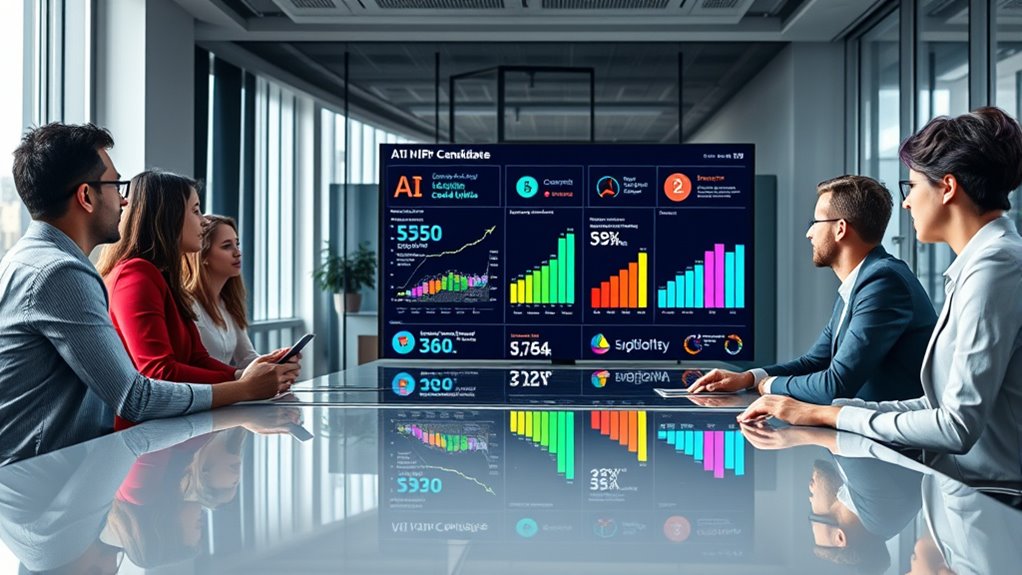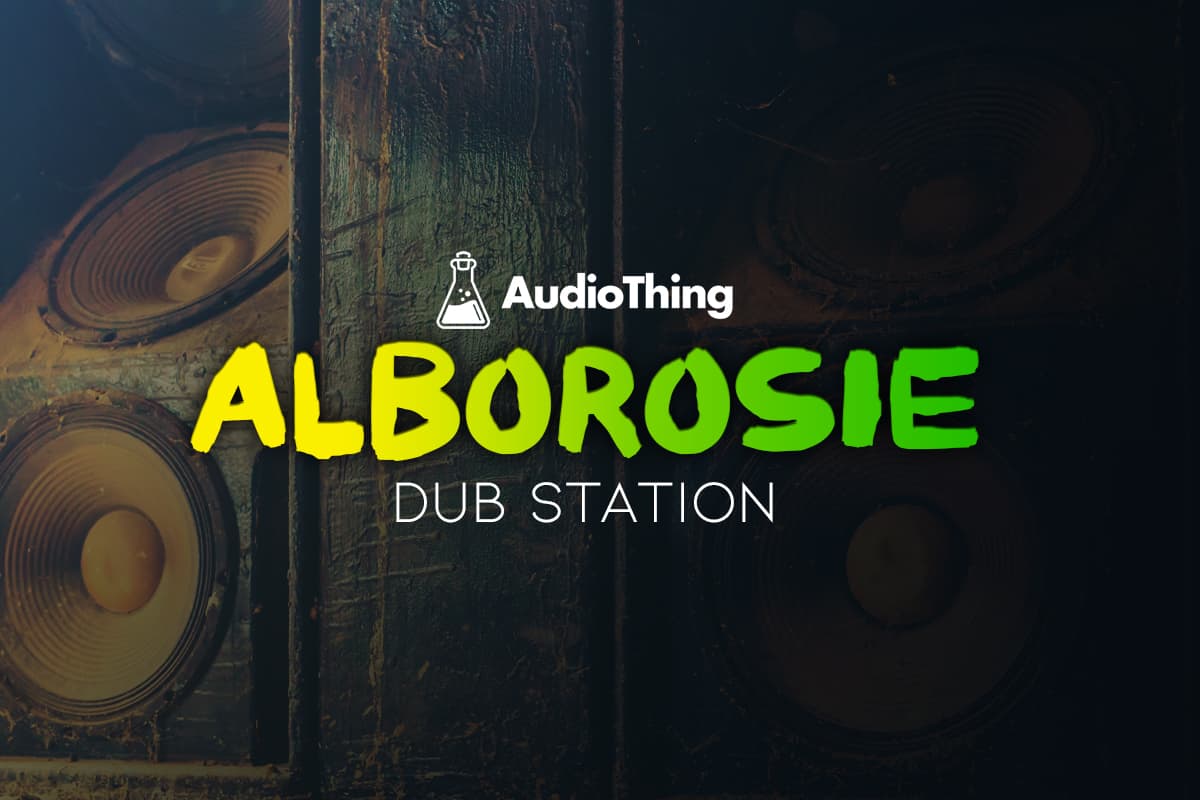AI’s revolutionizing HR by optimizing recruiting and talent management. You can automate tasks like resume screening and interview scheduling, saving time and reducing bias in candidate selection. Personalized communications enhance the candidate experience, while predictive analytics help identify talent gaps and predict turnover. Companies that embrace AI can improve employee retention and engagement. As the AI landscape continues to evolve, you’ll discover more about its impact on HR and the future trends shaping this field.
Key Takeaways
- AI automates recruitment tasks like resume screening and interview scheduling, saving time for HR professionals.
- Predictive analytics helps identify talent needs, skill gaps, and potential turnover, enhancing workforce planning.
- AI-powered tools reduce bias in candidate evaluation, ensuring fair recruitment practices based on qualifications.
- Personalized training pathways created by AI support employee growth and engagement, aligning with organizational goals.
- AI enhances the candidate experience through instant access to information and 24/7 chatbot support for inquiries.
The Current State of AI Adoption in HR

As AI technology continues to advance, HR professionals are increasingly recognizing its potential, with adoption rates soaring to 72% in 2025 from 58% just a year earlier.
Currently, about 1 in 4 employers are utilizing AI for HR-related activities, with a significant push occurring over the past year. Notably, talent acquisition leads the way, with 64% of organizations using AI for this purpose.
Additionally, 43% focus on learning and development, while 25% incorporate AI into performance management. Large organizations, especially in technology and finance, are at the forefront of this trend.
Despite concerns about job replacement and security risks, the global HR technology market is projected to reach $39.90 billion by 2029, highlighting the growing acceptance of AI in HR practices.
Advantages of Implementing AI in Recruitment

Implementing AI in recruitment offers significant advantages that can transform the hiring process for organizations of all sizes.
First, it saves you time by automating tasks like resume screening and interview scheduling, allowing your team to focus on strategic decisions. AI streamlines the recruitment process, resulting in faster hiring cycles and increased productivity.
AI streamlines recruitment by automating resume screening and interview scheduling, freeing teams to focus on strategic decision-making.
Additionally, AI helps reduce bias by evaluating candidates based solely on qualifications, promoting diversity in your hiring practices.
You’ll also benefit from better candidate matching through predictive analytics, which enhances the quality of hires.
Lastly, AI optimizes your recruitment budget by minimizing unnecessary expenses and improving employee retention, making it a cost-effective solution for your organization. Furthermore, the integration of AI tools can lead to more robust safety measures that ensure a fair and secure recruitment process.
Enhancing Candidate Experience With AI

Enhancing candidate experience with AI can significantly improve how applicants interact with your hiring process. With instant access to job details and company information, candidates feel more informed and engaged.
AI-driven personalized communications make your messages relevant and appealing, fostering a connection. Timely follow-ups keep candidates in the loop, reducing uncertainty.
The application process becomes smoother as AI automates tasks like data entry and screening, allowing candidates to focus on showcasing their skills.
AI-powered chatbots provide 24/7 support, answering common questions and minimizing wait times. By generating constructive feedback, AI promotes transparency and helps candidates refine their applications.
AI’s Role in Talent Management

In talent management, AI empowers you to create a skills-based workforce plan that aligns with your organization’s needs.
With predictive analytics, you can anticipate future talent requirements and make informed decisions.
Plus, personalized career pathing helps employees navigate their growth, enhancing satisfaction and retention.
Skills-Based Workforce Planning
As organizations face an ever-evolving job landscape, leveraging AI for skills-based workforce planning becomes essential in talent management. AI tools help you identify skill gaps while aligning talent acquisition with your business objectives.
By conducting comprehensive skill inventories, you can understand current capabilities and forecast future needs. AI-powered platforms streamline recruitment by matching job descriptions with candidates’ skills, making the hiring process more efficient.
Moreover, you can facilitate internal mobility through AI-driven talent marketplaces, connecting employees with suitable opportunities. Investing in personalized learning paths ensures your workforce is continuously reskilled and upskilled, enhancing employee engagement and loyalty.
Ultimately, skills-based planning allows your organization to adapt quickly, ensuring competitiveness and fostering innovation.
Predictive Analytics Applications
While traditional methods of talent management often rely on intuition, incorporating predictive analytics powered by AI can significantly elevate your approach.
By transforming raw data into actionable insights, you can make data-driven decisions that optimize your workforce. Predictive analytics helps you identify trends in employee performance and foresee potential issues, allowing for proactive interventions.
You’ll streamline hiring processes by focusing on skills and competencies, reducing bias while enhancing diversity. Additionally, you can anticipate future talent needs and identify employees at risk of leaving, which aids in retention strategies.
With AI automating data analysis and providing real-time insights, your HR decisions become strategic, ensuring alignment with organizational goals and boosting overall efficiency.
Personalized Career Pathing
By leveraging AI technology, organizations can create personalized career pathing that truly resonates with employees’ unique skills and aspirations.
AI-driven assessments identify your strengths and growth areas, ensuring a data-backed approach to skill development. Customized roadmaps guide you through actionable steps tailored to your goals, while real-time insights keep you informed about industry trends.
Automated workflows streamline goal setting and progress tracking, making your career planning more efficient. Dynamic career ladders offer you the chance to explore internal opportunities aligned with your ambitions.
Plus, AI-led mentorship connects you with coaches who can guide your journey. With these tools, your career development becomes not just a possibility, but a strategic reality.
Skills-Based Workforce Planning and AI

When you implement AI in skills-based workforce planning, you can create personalized training pathways that cater to each employee’s unique needs.
This tailored approach not only enhances employee mobility but also ensures that your workforce stays agile and ready for future challenges.
Personalized Training Pathways
Personalized training pathways are revolutionizing how organizations approach workforce development, leveraging AI to tailor learning experiences for each employee.
By analyzing your data, AI identifies skills gaps and recommends specific training modules that enhance your engagement and development. These adaptive learning systems continuously update your learning paths based on feedback and performance metrics, ensuring the training remains relevant and effective.
Companies like Amazon use AI to create hyper-personalized modules that suit your unique learning style. The result? A significant boost in productivity—studies show a 57% increase.
With ongoing learning opportunities, AI empowers you to stay competitive in a rapidly changing job market, making your career aspirations more achievable than ever before.
Enhanced Employee Mobility
Enhanced employee mobility is transforming how organizations manage talent, ensuring that skills align with workforce needs.
AI enables skills-based workforce planning by identifying and organizing employee skills, optimizing workforce allocation. It tracks emerging skills and compares them with market trends, helping you predict talent gaps before they arise.
Talent matching algorithms streamline candidate-job pairings, ensuring the right fit for roles. AI also suggests internal mobility adjustments, enhancing employee capabilities to meet evolving demands.
With dynamic skills matrices, you can continuously map employee proficiencies against organizational requirements in real-time.
Predictive Analytics for Employee Retention

Predictive analytics plays a crucial role in employee retention by leveraging historical data to identify trends and forecast potential turnover. By analyzing factors like job role, tenure, and engagement surveys, you can pinpoint at-risk employees showing signs of declining performance or absenteeism.
AI-driven models enhance this process, improving accuracy and revealing patterns in employee behavior. For instance, tools like IBM Watson Talent Insights boast a remarkable 95% accuracy in predicting attrition.
With these insights, you can implement targeted interventions, such as career development programs or recognition initiatives, to keep valuable team members engaged. Ultimately, this approach not only reduces turnover costs but also fosters a motivated workforce, driving organizational performance and stability.
Challenges and Ethical Considerations

While predictive analytics can significantly improve employee retention, it also brings a host of challenges and ethical considerations that organizations must navigate.
You might face issues like inadequate systems integration, which 47% of companies report as a barrier to effective AI adoption. Many organizations struggle with understanding AI tools, leading to knowledge gaps in recruitment.
Ethical concerns, such as ensuring unbiased algorithms and maintaining transparency, are crucial. Protecting employee data is essential, too, as compliance with privacy regulations becomes increasingly important.
Future Trends in AI for HR

As organizations embrace the future of work, the integration of AI in human resources is set to transform how HR functions operate.
You’ll witness the emergence of new roles, like GenAI experts, tasked with managing AI implementation. Existing positions will evolve to focus on strategic tasks, fostering increased specialization in AI-related skills.
You’ll also see enhanced decision-making through data-driven insights, enabling proactive talent management and performance evaluation.
AI will streamline processes, automating routine tasks and personalizing employee experiences. Innovations in talent acquisition will optimize candidate matching and reduce bias.
As GenAI and natural language processing become integral, HR will need to address data privacy concerns while continuously innovating to meet employee expectations. Furthermore, the market growth projected in AI tech indicates a significant shift in how organizations will leverage these tools for efficiency and effectiveness.
The Path Forward: Investing in AI for HR Functions

The rapid advancement of AI in HR functions signals a pivotal moment for organizations looking to enhance their operations and workforce management.
The swift evolution of AI in HR marks a transformative opportunity for organizations to optimize operations and workforce management.
As the AI HR market is projected to grow significantly, it’s crucial to invest strategically. You’ll find that AI improves efficiency, saving time for 85% of employers and reducing costs by up to 20%.
Focus on solving specific pain points, like talent sourcing and employee engagement, to maximize your ROI, which can reach 55% in some areas.
However, remember to address ethical concerns and balance AI use with human expertise. Training your team is essential for effective integration.
Frequently Asked Questions
How Can AI Impact Workplace Culture and Employee Morale?
AI can significantly impact workplace culture and employee morale. If integrated thoughtfully, it can enhance collaboration and innovation, fostering a positive environment.
However, if transparency’s lacking, it might breed distrust and fear, especially around job security. You might find that personalized AI solutions improve your work experience, yet inadequate communication about AI strategies can lead to confusion.
Balancing AI with human interaction is crucial for maintaining morale and fostering a supportive culture.
What Skills Do HR Professionals Need to Work With AI?
Navigating the world of AI is like sailing a ship through uncharted waters. To steer effectively, you need a sturdy skillset.
Understanding AI technologies and data management is essential, as is proficiency in analytical tools. Your communication skills will help you convey insights clearly, while emotional intelligence fosters strong relationships.
Lastly, strategic thinking allows you to align AI with broader business goals, ensuring you’re not just adrift, but navigating purposefully toward success.
How Do Companies Measure the Effectiveness of AI in HR?
To measure the effectiveness of AI in HR, you’ll look at several key metrics.
Start by assessing time-to-hire and cost-per-hire; they reveal how quickly and efficiently hiring processes are functioning.
Next, evaluate candidate quality and diversity to ensure AI is improving hire standards and reducing bias.
Finally, consider employee engagement and satisfaction scores to gauge how AI impacts the overall employee experience.
Regular reviews of these metrics will help you refine your AI strategy.
What Are the Potential Job Displacements Due to AI in HR?
AI’s potential for job displacement is significant, especially for clerical support roles, where many workers might find themselves at risk.
As AI systems automate tasks, you could face shifts in your responsibilities rather than outright job loss.
Adapting through upskilling and reskilling can help you stay relevant in your field.
Embracing continuous learning will position you to thrive alongside AI, ensuring you’re prepared for the evolving landscape of work.
How Do Different Industries Approach AI Adoption in HR?
Different industries approach AI adoption in HR based on their unique needs and resources.
In tech, you’ll see higher adoption due to innovation demands, while healthcare lags behind, often due to regulatory complexities.
Finance and information sectors lead in early adoption, focusing on talent acquisition.
If you work in a large organization, you’re likely to experience AI integration more than in smaller firms, where resources may be limited.
Each sector’s strategy influences its AI journey.
Conclusion
Incorporating AI into your HR processes can truly transform how you recruit and manage talent. Embracing this technology not only enhances candidate experiences but also streamlines talent management and boosts retention. While challenges exist, the benefits of predictive analytics and skills-based planning are undeniable. By investing in AI, you’re not just keeping up with trends; you’re positioning your organization for future success. So, why not explore the potential of AI and see how it can revolutionize your HR function?










